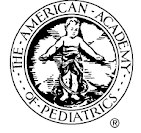 Things about journal club...
Things about journal club...
The next journal club will be on Thursday 20 June 2019 8am to 9am, in the Education and Skills Centre, F Floor, Stephenson Wing.
Paper: Prescribing emergency oral steroids in asthma clinics (please email us for a copy of the paper)
Journal Club is open to all health professionals and is a fun, informal way of learning to criticise papers and gather evidence to change practice. At each meeting a speaker presents a critical appraisal of a research paper, using a recognised appraisal tool such as CASP. Group members then have an informal discussion to determine whether or not current practice should be altered in light of the presenter's finding. Muffins available.
 Things about the book sale...
Things about the book sale...
There are still some excellent older editions to be bought from our book sale. This is a link to the
current up-dated list of what is available. If you have a library membership then we can send you items and charge to your account if you wish.
Things about making connections...
I spotted this item about the
benefit of talking to strangers . On a similar theme
we are getting excellent feedback from our last Randomised Coffee Trial. It was 100% positive experience for those that responded to survey and managed to meet their partners. Some quotes below
"It was a lovely experience especially as I am new to the trust. I want one every month!"
"Really enjoyed meeting my 3rd person on randomised coffee trial. A great way to get to know things about folk you may pass in corridors, but not necessarily have opportunity to talk to. Continues for me to be a positive experience!!"
"I found the experience very rewarding"
"I would not have been likely to have the same sort of supportive chat with this colleague in the absence of the RCT, but it was a very positive experience and boosted us both, I think."
"Really lovely experience 🙂"
"can I meet someone I don't know next time? "
[Sadly I don't know who you know - if you contact me I will see what I can do!]
"great way of networking"
"It was a great opportunity to meet a colleague and learn about their work. I look forward to doing it again! Thank you for organising."
Things about public health...

Many interventions that are delivered within public health services have little evidence of effect. Evaluating interventions that are being delivered as a part of usual practice offers opportunities to improve the evidence base of public health. However, such evaluation is challenging and requires the integration of research into system-wide practice. The Born in Bradford’s Better Start experimental birth cohort offers an opportunity to efficiently evaluate multiple complex community interventions to improve the health, wellbeing and development of children aged 0–3 years. Based on the learning from this programme,
this paper offers a pragmatic and practical guide to researchers, public health commissioners and service providers to enable them to integrate research into their everyday practice, thus enabling relevant and robust evaluations within a complex and changing system.
Things about children's cancer services...

NHS England has launched a 60-day consultation to seek views on
proposed changes to children's cancer services. These are used by children aged between 0 and 16. In some cases, and with the agreement of Teenage and Young Adult's Cancer Services, they may also treat teenagers up to the age of 18.
The aim of the service specifications is to improve the outcomes and experience of children and young people with cancer.
This consultation guide sets out:
- How care is currently provided.
- The proposed changes and reasons for these.
- How the proposed changes will be implemented.
The consultation will run from Wednesday 5 June until Sunday 4 August
Things about migration...
The fourth
Migration Matters Festival starts today, running until Saturday 22 June to coincide with Refugee Week 2019. The festival will be headlined by the multi-talented Benjamin Zephaniah and The Revolutionary Minds, alongside the likes of Lowkey, Seyed Ali Jaberi Hamdel Ensemble, Wiyaala and Angelina Abel.
 Things about Sure Start...
Things about Sure Start...
Sure Start has had a turbulent history. The programme was first introduced in 1999 as Sure Start Local Programmes, targeted at highly disadvantaged neighbourhoods. Five years later, the 10-Year Strategy for Childcare called for ‘a children’s centre in every community’, transforming the initiative into a universal service. At its peak in 2009–10, Sure Start accounted for £1.8 billion of public spending (in 2018–19 prices), about a third of overall spending on programmes for the under-5s. But in the decade since, the context has been one of funding cuts, consolidation and centre closures, with funding falling by two-thirds to £600 million in 2017–18. In
this report, The Institute of Fiscal Studies consider the overall impacts on health of the Sure Start programme as a whole between its inception in 1999 and its peak in the late 2000s. Their focus on health outcomes is motivated by the fact that, while Sure Start’s services were multifaceted and varied between centres and over time, one of its objectives was to improve children’s health.
Things to make...

With Father's day on Sunday I thought you might like to see some baked gifts that children can make (for anyone of course not just dads!) there is a
nice selection here



































